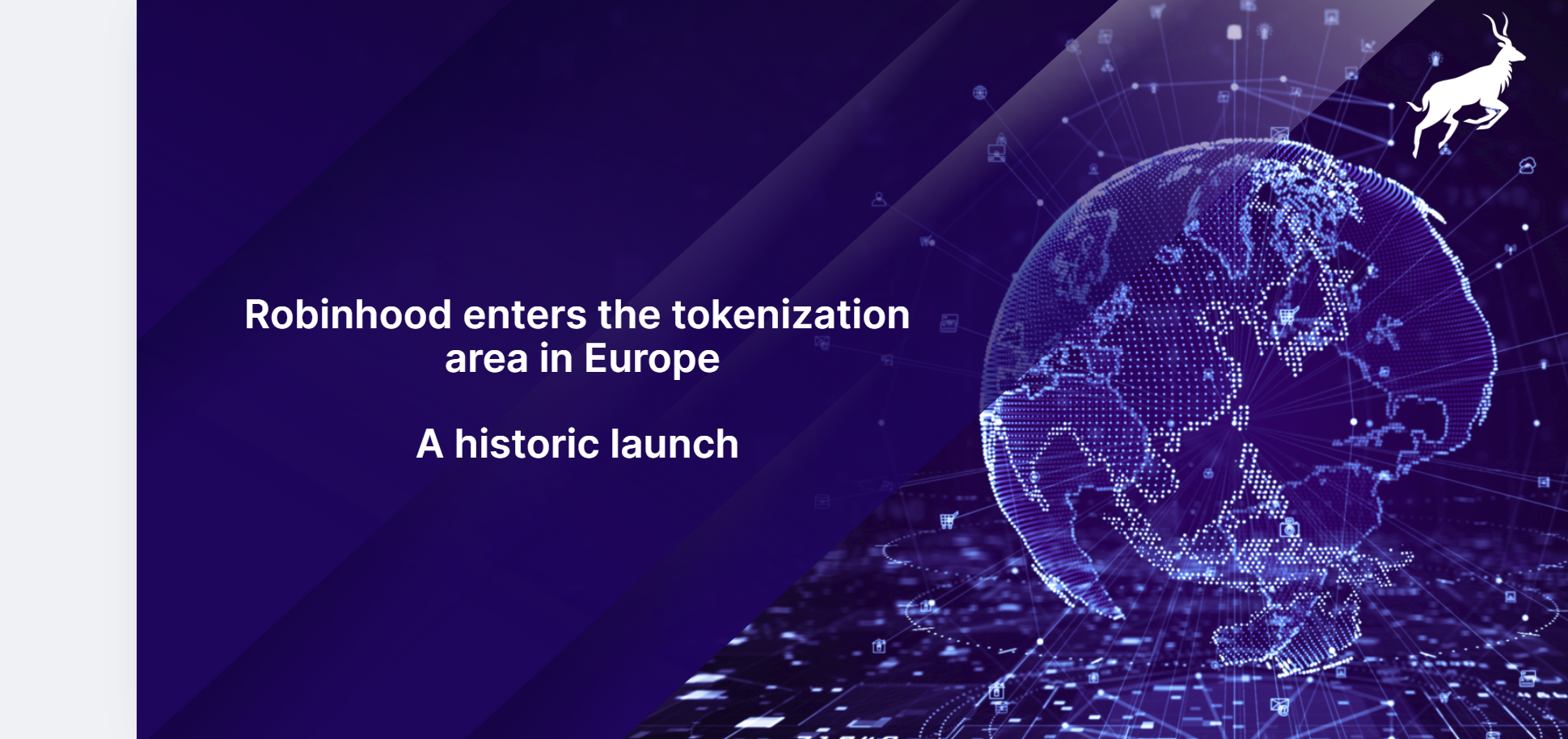
Full name
Jan. 11th, 2022
◆
5 min read

Last week, Robinhood made headlines with a bold move: launching tokenized shares in Europe. For the first time, over 200 U.S. stocks and ETFs, also big names like Apple, Microsoft, Nvidia, and even SpaceX became tradable as stock tokens on a blockchain. It is an Ethereum-compatible blockchain built by Robinhood itself, a customized fork of Arbitrum. The announcement was met with a mix of excitement, curiosity, but also a sprinkle of skepticism because It's not a daily thing that a fintech giant like Robinhood dives headfirst into web3 finance in EU, especially with such a retail-friendly product. Investors across Europe can now buy exposure to American tech giants with a vision of making it almost 24/7, already being at 24/5, all on a secure and transparent blockchain. But the main question that makes everyone curious still remains: is this the actual future of investing, or just a shiny new user interface? This blog dives deeper into what exactly is Robinhood tokenizing and are these real shares?
Let’s begin with stating some positives, because there are many! Robinhood’s new product offers nearly round-the-clock trading. No more waiting for Wall Street to open, you can simply trade stock tokens on your phone at 2 AM if you feel like it. That alone removes layers of friction that the traditional stock market has clung to since a long time. The user interface is also very simple, intuitive, and built for people who’ve grown up managing their lives through the easy access of apps. These tokens are seamlessly integrated into their platform, that mirror the traditional financial markets. For a generation that’s more fluent in Ethereum than ETFs, this is a sleek and low-barrier entry into global investing. Robinhood has taken a complex infrastructure and made it feel almost way too easy. But we all know that ease always comes at a cost, what cost is that?
Robinhood's tokens are derivatives, meaning they reflect the economic performance of real shares held off-chain. But you, the investor, don’t actually own the underlying shares. You're not on any shareholder registry, hence not entitled to dividends, voting rights, with no legal claim to the company as well. From a legal and financial standpoint, these tokens function more in a way that you gain benefit if the stock goes up or down, not actual equity. This isn’t necessarily bad, just a different model, hence it needs to be understood for what it is: a synthetic asset, not digital ownership.
If we look at the history of transportation, the journey from horse-drawn carriages to modern trains wasn’t only a single leap. There was an entire transitional phase: the horse-drawn tram, which used rails to reduce friction but still relied on horses. We can say that Robinhood’s tokenized shares are like that horse-drawn tram. The rails, meaning the blockchain are there, reducing transaction friction and improving accessibility. But the engine, meaning the on-chain legal ownership is missing. This is definitely a big step because it modernizes access, while getting more people into the investing ecosystem. But it’s not the final destination. The promise of decentralized finance isn’t just easier access, rather it lies within true ownership, programmability, and transparency.
Real ownership means the actual share, not a synthetic representation is issued directly on-chain. It means legal frameworks recognize blockchain as the source of truth for ownership, and token holders enjoy the full suite of share holder rights: dividends, voting power, along with legal protection. In Germany, this is no longer theoretical: the eWpG law (Elektronische Wertpapiergesetz) enables companies to issue digital securities that are legally binding and recognized by courts, without any intermediaries and wrappers. With this setup, the blockchain ledger becomes the official registry of who owns what. You’re not trusting a centralized entity to maintain your rights, rather anchoring them in code and law.
At NYALA, that’s exactly what we are committed to do, one issuance at a time. We tokenize actual shares and register them on-chain under the eWpG framework. This ensures:
1. You become the legal owner of your shares
2. Your ownership is visible and verifiable on the blockchain
3. You retain all the rights and protections of traditional equity
We were the first company in Germany to tokenize shares under the eWpG. Our infrastructure co-placement network is live, and we’re making it available across the entire European Union. The goal is to offer a framework where founders, investors, and platforms can connect directly, without unnecessary middlemen. Robinhood's move is a big sign that finance is becoming more open, more accessible, more programmable. But if we want to truly modernize capital markets, we can’t stop at easier trading. We need to redefine ownership itself and bring it on-chain, legally and transparently. Let’s not settle for horse-drawn trams when the electric train is already boarding.
Book a call with our expert.

